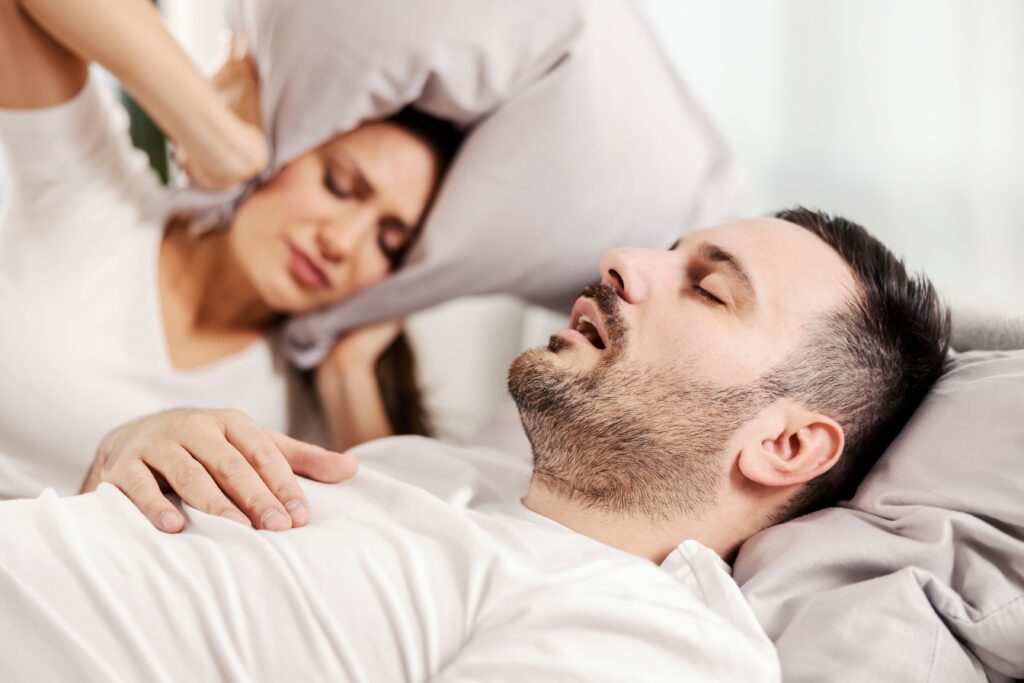Don't let sleep apnea disrupt your health and well-being any longer
Take control of your sleep and improve your quality of life by exploring our advanced sleep apnea treatments today. Schedule a consultation with our expert team and experience the rejuvenating power of a good night's sleep. Don't wait - start your journey towards better sleep and vitality now!

Featured Articles
What Are The Sleep Apnea Treatments?
leep apnea is a potentially serious sleep disorder that causes you to stop breathing during sleep. It’s caused by blocked airways, and it can lead to significant health problems like high blood pressure, heart disease, stroke, diabetes, depression, and obesity. If you suspect you may have sleep apnea, you should talk to your doctor right away.
In mild cases, sleep apnea may be treated with lifestyle changes like weight loss, quitting smoking, and sleeping on your side or stomach. Severe cases, however, often require the use of mouthpieces, breathing devices, and other treatment options.
The treatment options for sleep apnea include the following:
Continuous positive airway pressure (CPAP)
Continuous positive airway pressure (CPAP) is one of the most common types of sleep apnea treatments. CPAP involves wearing a mask over your mouth while you sleep. The mask is connected to a machine by tubing, which forces air into your mouth and keeps it open.
CPAP is one of the best treatment options for sleep apnea for a few reasons. First of all, CPAP is very effective. It’s considered the gold standard for treating sleep apnea. It’s also easy to use. You don’t have to do anything differently when sleeping. This makes it a very convenient option.
Oral appliance therapy (OAT)
Oral appliances, or mouth guards, are worn in the mouth during sleep to prevent sleep apnea and snoring. OAT devices come in a few different forms:
- Mandibular advancement device (MAD)
- Tongue retaining device (TRD)
- Tongue retaining device with suction (TSD)
Surgery for sleep apnea
In severe cases of obstructive sleep apnea, surgery may be recommended. There are several different types of surgeries to treat sleep apnea:
- Uvulopalatopharyngoplasty (UPPP):For snoring caused by a large uvula or tissue blocking the throat.
- Tonsillectomy:For children who snore or who have sleep apnea caused by enlarged tonsils.
- Pillar implant: For adults who snore or have a deviated septum.
- Genioglossus advancement:For adults who snore and who have a tongue that falls back during sleep.
- Maxillomandibular advancement: For adults who snore and have sleep apnea caused by blocked airways.
Why Should You Get Screened For Sleep Apnea?
As we get older, increasing our screenings for medical issues becomes a way of life. For women, mammograms become vitally important after age 40, and for both men and women, colon cancer screenings also become important after the age of 50. But for some types of illnesses, screenings aren’t recommended to everyone, unless they display symptoms.
One such screening that often doesn’t get recommended enough is screening for sleep apnea. While screening for sleep apnea isn’t a regularly scheduled screening for most, there are certainly key indicators that you should look out for that might help warn you that you could have sleep apnea.
These symptoms include things like snoring, stopping and restarting breathing, not getting a restful night’s sleep, frequent waking, daytime lethargy, impaired cognitive function, depression, obesity, and the worsening of some serious medical conditions ranging from diabetes to cancer.
Easy Changes For Improving Sleep Apnea Symptoms
Reducing your sleep apnea symptoms is a concerted effort. This means it’s recommended that you treat your sleep apnea by making lifestyle changes in addition to wearing your orthotic on a consistent basis. Here are just a few ideas for helping to reduce the signs and symptoms of sleep apnea, and leave you feeling great!
- Exercise
While you may not be ready for a full workout, starting small by stretching, walking, or practicing a low impact exercise regimen like yoga can be extremely beneficial in both helping you sleep better, and by getting your body in better shape. This can improve breathing and even help you lose weight, which in turn can lessen your sleep apnea symptoms. - Consistent Sleep
When it comes to sleep apnea, consistency is key. Setting yourself a regular bedtime and going to sleep at a reasonable hour can help you carve out more sleep time, and feel more rested. This can also help keep some of your sleep apnea symptoms under control. - Reduce Stress
Stress is often an unavoidable fact of life. The key to reducing stress is to not put yourself in stressful situations, and when in stressful situations work to reduce your stress levels. This can come in the form of meditation, yoga, deep breathing, and in many cases, antidepressants or anti-anxiety medications. Leading a low stress lifestyle can help you - Improve Your Diet
Improving your diet has myriad health benefits, including helping you sleep better or even losing excess weight. A healthy diet is better for your overall health, and can help mitigate negative side effects of sleep apnea. It can help you sleep better by reducing things like indigestion, and boosting your immune system so you can better fight off colds.
While it’s likely that no one solution can completely cure your sleep apnea, these tips, in combination with sleep orthotic therapy from Dr. Abelar can help improve symptoms and help you get a better night’s sleep.
Want to learn more about our sleep apnea treatment?
The great news about sleep apnea diagnosis is that it’s treatable. Dr. Abelar offers sleep apnea solutions such as sleep orthotics to help position your airway open manually as you sleep. These comfortable devices are custom fit to your mouth, and are easy to clean. They require no machinery, masks, pumps, or electricity to operate, and most people find them more pleasant to use, thus using them more frequently than CPAP therapy. A San Diego dentist can evaluate the extent of sleep apnea and help you with various sleep apnea treatment in San Diego, CA that helps with mild to moderate sleep apnea.
Call Aesthetic Dentistry of San Diego, or schedule an online appointment with us, and we’ll be able to guide you further.






